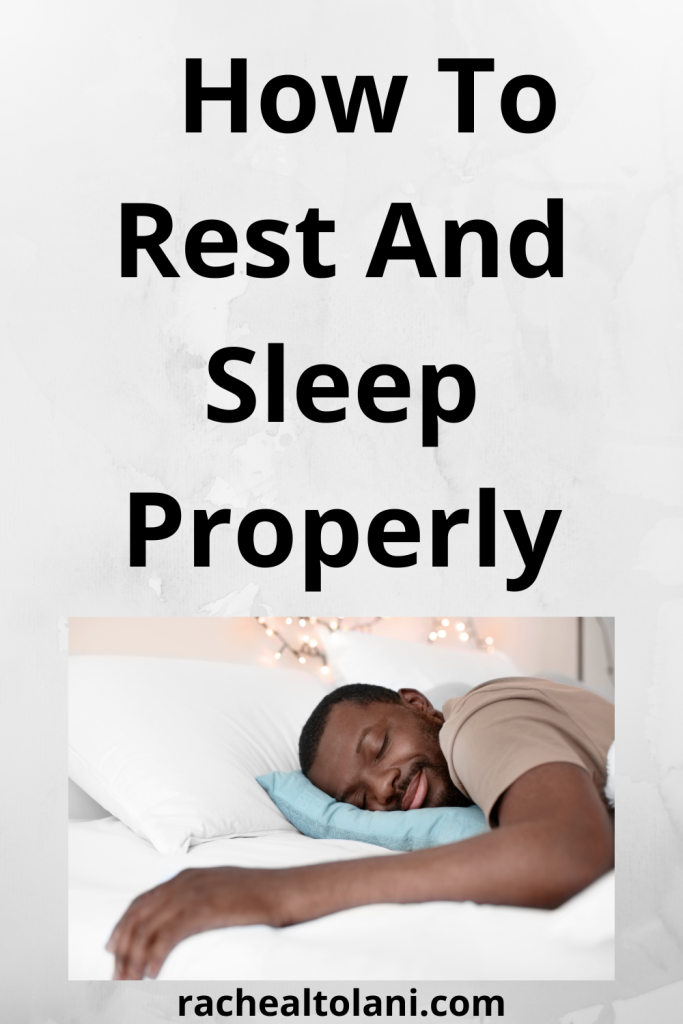Proper rest is essential for your overall health and well-being. Whether you’re recovering from physical exertion, managing stress, or simply trying to get a good night’s sleep. However, how to rest and sleep and sleep better at night is highly recommended.
Here are some tips on how to rest and sleep well at night.
Establish a Consistent Sleep Schedule
Go to bed and wake up at the same time every day, even on weekends.
This helps regulate your body’s internal clock, making it easier to fall asleep and wake up feeling refreshed.
Create a Comfortable Sleep Environment
Ensure your bedroom is dark, quiet, and at a comfortable temperature.
Invest in a comfortable mattress and pillows that provide adequate support for your body.
Limit Screen Time Before Bed
The blue light emitted by phones, tablets, and computers can interfere with your sleep-wake cycle. Try to avoid screens at least an hour before bedtime.

Establish a Bedtime Routine
Engage in relaxing activities before bed, such as reading, taking a warm bath, or practicing deep breathing exercises.
This signals to your body that it’s time to wind down.
Watch Your Diet
Avoid heavy meals, caffeine, and alcohol close to bedtime, as they can disrupt your sleep.
Opt for a light, healthy snack if you’re hungry before bed.
Stay Active During the Day
Regular physical activity can improve sleep quality.
However, avoid vigorous exercise close to bedtime, as it can be stimulating.

Manage Stress
Practice stress-reduction techniques like meditation, mindfulness, or yoga to calm your mind and relax your body.
Consider keeping a journal to jot down any worries or thoughts before bedtime.
Limit Naps
While short power naps (20-30 minutes) can be rejuvenating, long or irregular daytime naps can interfere with nighttime sleep.
If you need to nap, do so earlier in the day.
Avoid Clock Watching
Staring at the clock can increase anxiety about not being able to fall asleep. If you can’t sleep, consider getting out of bed and doing a relaxing activity until you feel sleepy.
Limit Exposure to Bright Light at Night
Reduce exposure to bright lights in the evening to help signal to your body that it’s time to sleep.
Consider using blackout curtains in your bedroom.

Stay Hydrated
Dehydration can disrupt sleep, so aim to stay adequately hydrated during the day. However, limit fluid intake close to bedtime to prevent waking up for bathroom trips.
Create a Relaxing Bedtime Ritual
Engage in calming activities that signal the transition to sleep, such as dimming the lights, listening to soothing music, or practicing relaxation exercises.
Seek Professional Help if Needed
If you have chronic sleep problems, consult a healthcare professional or sleep specialist for a proper evaluation and guidance.
Remember that rest isn’t just about sleep; it also involves relaxation and stress management during your waking hours. Prioritizing rest in your daily routine can lead to improved physical and mental well-being, increased productivity, and a better overall quality of life
Also read:


1 thought on “How To Rest And Sleep Better At Night”